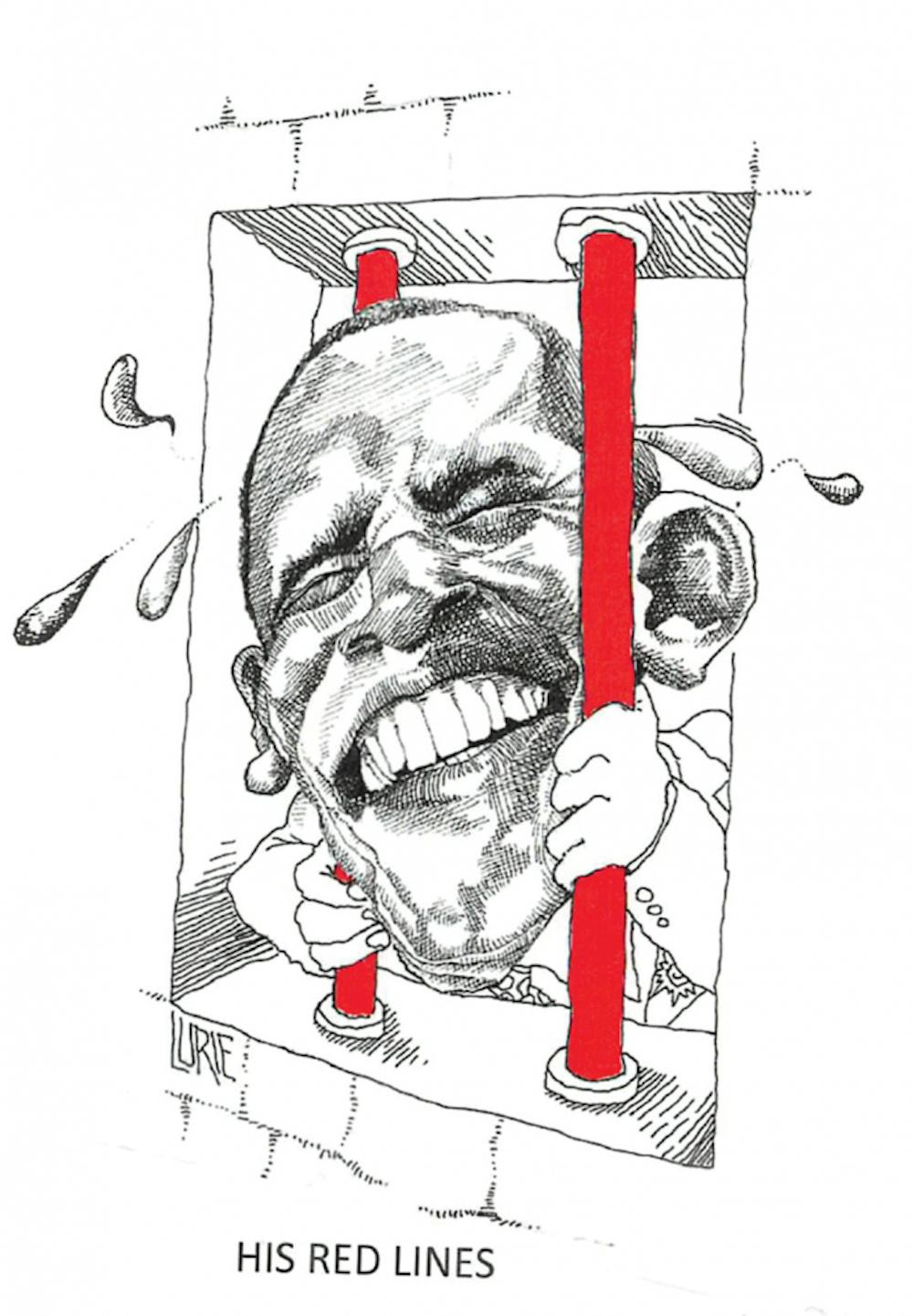Abigail Pollock & Kari Travis | Echo
President Obama's plan for military action against Bashar al-Assad's regime moved forward
Wednesday after gaining approval from the U.S. Senate Foreign Relations Committee.
The Obama Administration advocated in favor of military action following reports that al-Assad slaughtered nearly 1,500 civilians during chemical weapons attacks that reportedly occurred Aug. 21.
news conference during the Group of 20 summit in Stockholm"I didn't set a red line," Obama said during the conference. "The world set a red line when governments representing 98 percent of the world's population said the use of chemical weapons are abhorrent and passed a treaty forbidding their use even when countries are engaged in war. Congress set a red line when it ratified that treaty."
While the resolution for military action awaits final approval from the Senate and House, the U.S. stands at a crucial point in its foreign policy strategy, according to Hadley Mitchell, professor of economics. Due to the international community's many economic and political interests in Syria, the U.S. cannot afford simply to threaten action without also following through, Mitchell said.
"There's that theme, 'speak softly and carry a big stick'-Teddy Roosevelt," Mitchell said. "And we're speaking loudly and carrying a little twig."
The only definite word on military strategy so far is the White House's commitment to keep U.S. troops out of Syria. However, the establishment of a no-fly zone and reliance on U.N. support have been ruled out as viable options, according to CNN.
With Russia, China and Iran backing Syria in the U.N., international intervention seemed plausible through an international coalition, butThe region is volatile, and ending the Syrian civil war by arming rebel troops or toppling the al-Assad regime could hand power to the al-Qaida-affiliated groups which now control much of the rebel activity, according to CNN.
"Supporting the opposition at this point would be like French-kissing al-Qaida," said Michael Rubin, a former Pentagon official, according to CNN.
The U.S. is now left to consider a strategy of unilateral action to punish, but not topple, al-Assad.
Six U.S. warships are poised in the eastern Mediterranean, ready to carry out a cruise missile strike against Syria at the Obama's command, Reuters said.
Syria has had plenty of time to prepare for a military strike, and there is no guarantee against civilian casualties, according to CNN. Syrian retaliation also cannot be ruled out, and the possibility of a Syrian strike against a U.S. ally in the region may be indicated by reports of the Israeli government distributing gas masks and making military preparations, according to Mitchell.
"The stakes are enormously high, not only for the U.S. or countries like Korea, but any other country where we've made promises. If Obama can simply talk and not perform, why should anyone else trust us?" Mitchell said.
Civil unrest in Syria has stretched for decades, only to be crushed by a regime accused of being "authoritarian, totalitarian and cliquish," according to CNN. In February 2011, protests were sparked when children were arrested for painting anti-regime slogans in the southern Syrian city of Daraa. Government security forces reacted by killing protesters, an action that caused thousands of civilians to rise up and call for the end of Assad's regime, NPR reported.. Assad responded by bringing his army against the rebel fighters and anti-regime protesters he labeled terrorists, CNN said.
Intervention was not likely until August 2012, when Obama made an unscripted comment on Syrian chemical weapons during a speech on the threat of weapons of mass-destruction, according to the official White House website. In December of that year, Obama addressed Syria to clarify the U.S. position.
as reported by CNN.From May 2012 to March 2013, both sides of the Syrian civil war made claims that chemical weapons had been used against them, and by spring of 2013 Britain, France, Israel, Turkey and the U.S. all claimed to have evidence linking chemical weapons attacks to the al-Assad regime.
Finally, on Aug. 18, 2013, a U.N. investigative team was allowed to enter the country, and evidence began to leak of a massive chemical weapons attack on Syrian civilians by the al-Assad regime, leading to international outcry, according to CNN.





